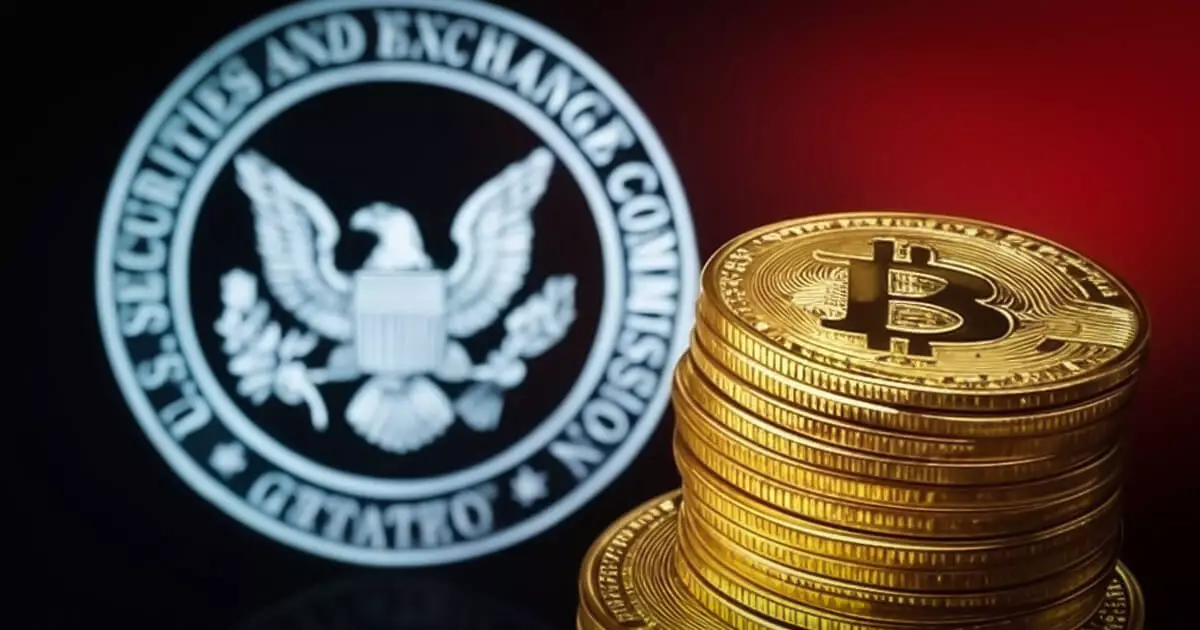As the new administration takes its place in the White House, the landscape of cryptocurrency regulation in the United States is set for significant upheaval. With reports emerging from trusted sources indicating that the US Securities and Exchange Commission (SEC) is preparing to initiate notable changes in its enforcement policies regarding cryptocurrency firms, the potential for a friendlier regulatory environment has never been more pronounced.
The anticipated changes at the SEC coincide with the incoming leadership of Paul Atkins, a former SEC commissioner widely known for advocating a less interventionist approach to cryptocurrency regulation. Following his Senate confirmation, Atkins is expected to steer the commission in a direction that could influence the way cryptocurrencies are categorized and regulated, particularly concerning their classification as securities. This shift in regulatory tone signals to both investors and crypto firms that a reexamination of current policies may be forthcoming.
Commissioners Hester Peirce and Mark Uyeda, known for their crypto-friendly perspectives, are reportedly at the forefront of these changes. Both have expressed a willingness to clarify the often nebulous lines that define what constitutes a security in the crypto space. By possibly reevaluating ongoing enforcement actions, including those against prominent firms like Coinbase and Kraken, the SEC appears poised to alleviate some of the regulatory burden that has constricted the growth potential of these companies.
The SEC’s potential pivot could indeed be seen as a response to the growing pressure from the crypto community, which has criticized current regulatory measures as overly stringent and costly. Many in the sector argue that excessive compliance expenses hinder innovation and drive companies to seek more favorable environments abroad. Legal expert Bill Hughes suggests that the insights from the SEC insiders indicate an understanding of the pressing need for change in regulations. This sentiment echoes the broader market trend, where firms are increasingly vocal about the burdens they face under existing policies.
The incoming administration’s anticipated rescindment of certain accounting guidelines, considered a deterrent to holding cryptocurrencies on behalf of clients, could significantly transform the operational landscape for financial institutions. The broader acceptance of cryptocurrency holdings could democratize access to these emerging assets, provided that the SEC adopts clear and consistent regulatory frameworks.
While the prospect of deregulation carries potential benefits, it also raises important questions about the ethical implications of such moves. Critics caution that halting or reevaluating enforcement actions could mark a worrying trend toward the politicization of regulatory processes. The notion of withdrawing ongoing litigation—especially in cases devoid of outright fraud—could create a precedent that undermines the SEC’s credibility and disrupts established legal norms.
Prominent legal figures voice their apprehensions about the ramifications of these possible changes. Philip Moustakis, a seasoned attorney with past experience at the SEC, notes the unprecedented nature of mass dismissals of enforcement cases, highlighting the long-term impacts on the commission’s credibility. Questions remain about how such a move would affect the courts, which could resist the resolution of complex legal battles centered on the definition of securities, adding yet another layer of uncertainty to an already volatile market.
Despite the uncertainty surrounding the SEC’s next steps, there is speculation that the commission might reopen dialogues for settlements in ongoing cases. This is indicative of a potential shift towards collaboration rather than conflict, with an emphasis on constructive engagement between regulators and the crypto community. Robert Cohen, a former SEC enforcement division member, underscores the idea that ongoing negotiations could yield more satisfactory outcomes for both regulators and firms.
As the SEC navigates this pivotal moment, the wider implications of these changes will be significant for the cryptocurrency industry. With innovation and investment hanging in the balance, stakeholders are watching closely to see whether the new administration’s policies will foster a more inclusive environment for the burgeoning crypto economy or exacerbate existing complexities in regulation. The unfolding narrative surrounding cryptocurrency regulation is not just about enforcement; it represents a broader ideological struggle over the future of finance in the 21st century.















